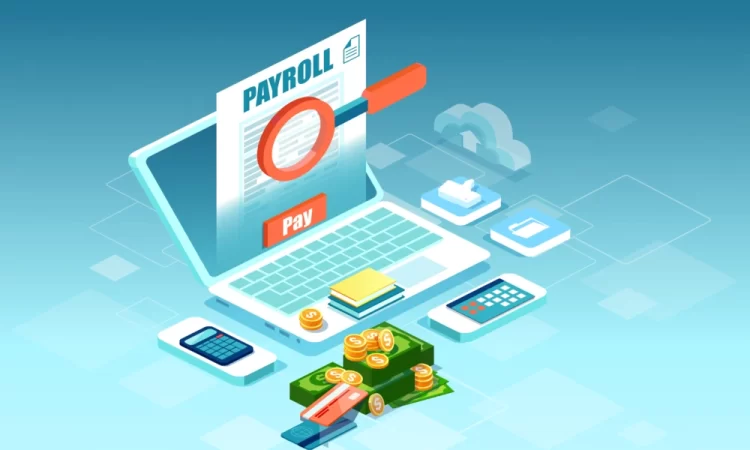
Managing payroll can be a nightmare for businesses. It’s a critical task, and one mistake can lead to unhappy employees or even legal headaches. That’s why many businesses have turned to payroll accounting software – to take the stress out of calculating salaries, handling tax deductions, and keeping everything in order. But while these tools are incredibly helpful, they do raise an important question: are we relying on technology too much?
Why Payroll Software is So Attractive
It’s no surprise that payroll software has become a go-to for so many businesses. Here’s a look at why so many people swear by it:
- Accuracy and Time-Saving: Let’s face it, manually calculating salaries, taxes, and bonuses can lead to mistakes – even if you’re careful. Payroll software reduces human error and speeds up the process, making sure everyone gets paid accurately and on time.
- Taxing Times: Tax laws change all the time, and keeping up with them can be a headache. Thankfully, most payroll software comes with built-in updates that automatically calculate taxes and generate the right reports. It’s one less thing you need to worry about.
- Employee Self-Service: With payroll software, employees can check their pay stubs, request time off, and even update personal info themselves. This self-service feature cuts down on administrative time and lets employees feel more in control of their own information.
- Better Record-Keeping: Keeping track of everything is a nightmare without the right system. Payroll accounting software stores everything from pay history to tax filings, making it easier for you to access when you need it – and ready for tax time.
- Less Room for Error: Payroll software handles all the calculations for you, meaning there’s less chance for things to go wrong. Everything from overtime to deductions is calculated in real-time, helping you stay accurate and compliant with the law.
But Here’s Where It Gets Tricky
All this technology sounds great, right? But is it really as perfect as it seems? Let’s dive into some of the potential downsides of putting all your payroll management in the hands of software.
- Over-Reliance on Technology: The thing with automation is that you can get a bit too comfortable letting the system do all the work. Software can make mistakes too – especially if you’re not checking it regularly. If you’re not reviewing your payroll before hitting “submit,” you might miss something important like an incorrect tax code or a forgotten bonus.
- Loss of Flexibility: Payroll software tends to work best with standard pay structures. If you have a unique situation, say, someone working on a commission or irregular hours, the system might not be as flexible as you’d like. Some software doesn’t easily accommodate out-of-the-ordinary pay scenarios, which could cause delays or confusion.
- Technology Failures: Servers crash, software glitches, and suddenly, you’ve got a payroll disaster on your hands. If you’ve fully relied on the system, you could end up in a tricky situation. Without a backup plan, it might be hard to make sure your employees are paid on time.
- Data Security Risks: Payroll software often stores sensitive information, like employee salaries and tax details. While many systems are secure, no system is 100% foolproof. A data breach could put your employees’ personal information at risk, and that’s something you definitely want to avoid.
- Losing the Personal Touch: Payroll is more than just numbers – it’s about keeping your employees happy. If they feel like they’re just another number in the system, you might end up with frustrated staff. They might not feel comfortable bringing up an issue if it’s all managed by software, especially when it’s hard to get a personal response.
Striking a Balance
So, does that mean payroll software is a bad idea? Not at all! The key is to balance the convenience and efficiency it offers with a bit of hands-on attention. Here are some ways you can get the best of both worlds:
- Regular Reviews: Just because the modern accounting software does the work doesn’t mean you shouldn’t check the results. Take some time to review the payroll data before finalising everything. Ensure there are no discrepancies, and everything is in line with company policies.
- Backup Plans Are a Must: If the system crashes or something goes wrong, having a backup plan is essential. Keep a manual record or make sure you can pull data out of the system quickly if you need to make adjustments.
- Human Touch Still Matters: Even though software can handle most of the work, employees appreciate a human touch. Be available to answer questions and solve problems quickly. The personal connection can make all the difference in employee satisfaction.
- Train Your Team: Not every employee is tech-savvy. Providing a little bit of training on how to access pay stubs or update personal information in the system can save time and reduce confusion. The easier you make it for them, the better.
Bottom Line: Should You Use Payroll Software?
At the end of the day, payroll software is a great tool for businesses looking to save time, reduce errors, and stay compliant with tax laws. But it’s not without its risks. The key is to use the software to make your life easier without completely relying on it.
Reviewing the data, keeping a backup plan, and maintaining personal involvement, you can get the best of both worlds: accuracy and the human touch. So, if you haven’t already, it’s worth considering payroll software – just remember to keep your eyes open and not let it take over everything!




